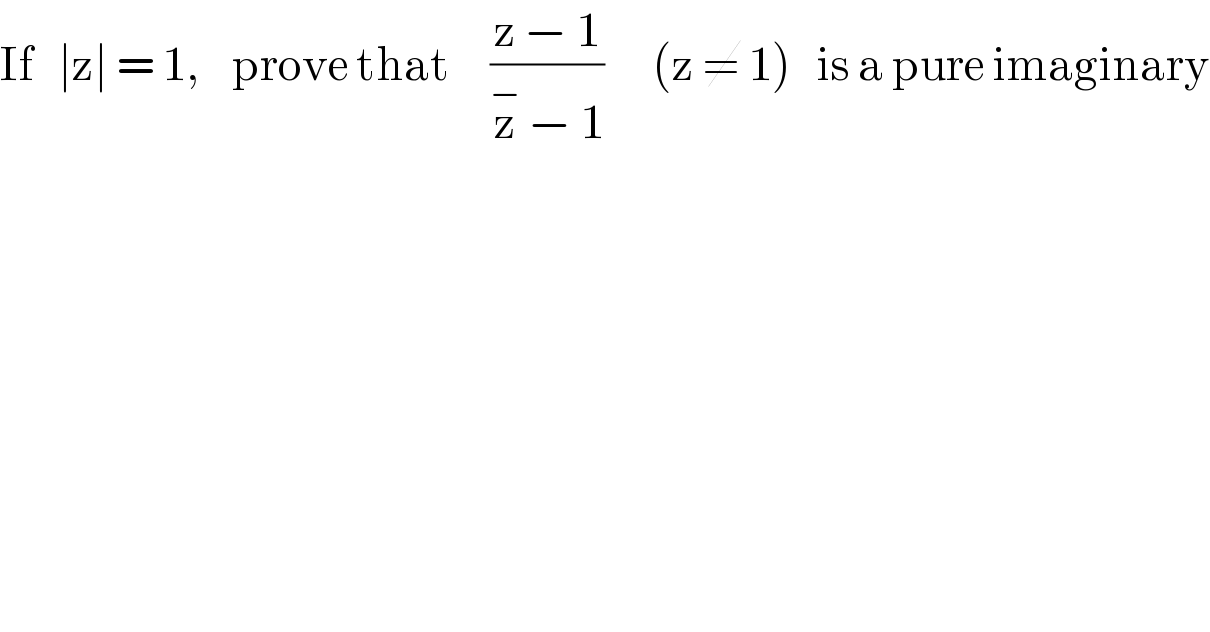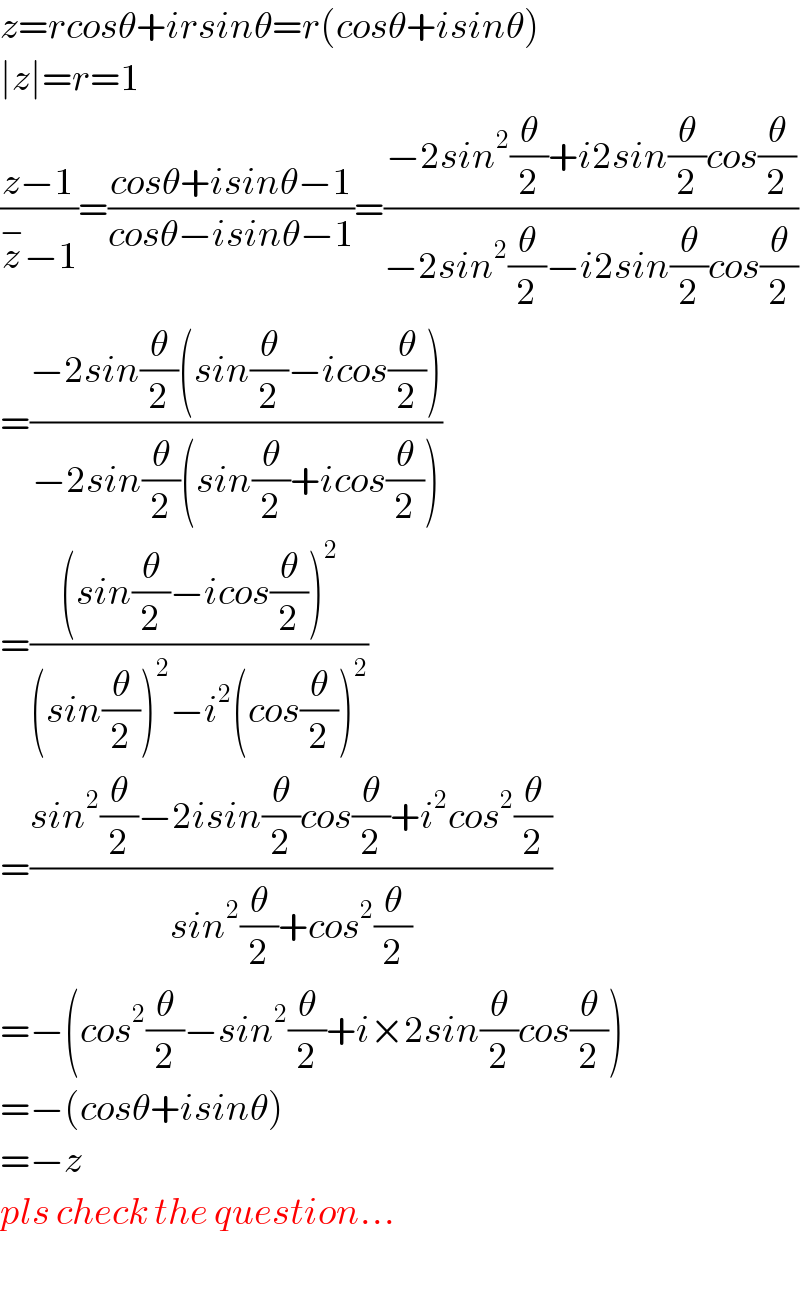
Question and Answers Forum
Question Number 51643 by Tawa1 last updated on 29/Dec/18

Answered by tanmay.chaudhury50@gmail.com last updated on 29/Dec/18

Commented by Tawa1 last updated on 29/Dec/18

Commented by peter frank last updated on 29/Dec/18

Answered by peter frank last updated on 29/Dec/18
![((z+1)/(z−1)) z=x+iy z^− =x−iy ((x+iy−1)/(x−iy−1)) (((x+1)+iy)/((x−1)−iy)) [ (((x+1)+iy)/((x−1)−iy))]×[(((x−1)+iy)/((x−1)+iy ))] ((x^2 +y^2 −1)/(x^2 +y^2 −2x))+((2xi)/(x^2 +y^2 −2x)) pure imaginary ((x^2 +y^2 −1)/(x^2 +y^2 −2x))=0 x^2 +y^2 −1=0 x^2 +y^2 =1 ∣x+iy∣=1 ∣z∣=1](Q51665.png)
Commented by Tawa1 last updated on 29/Dec/18

